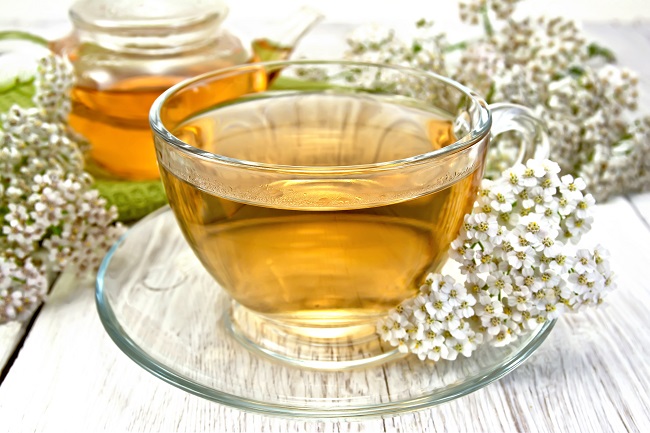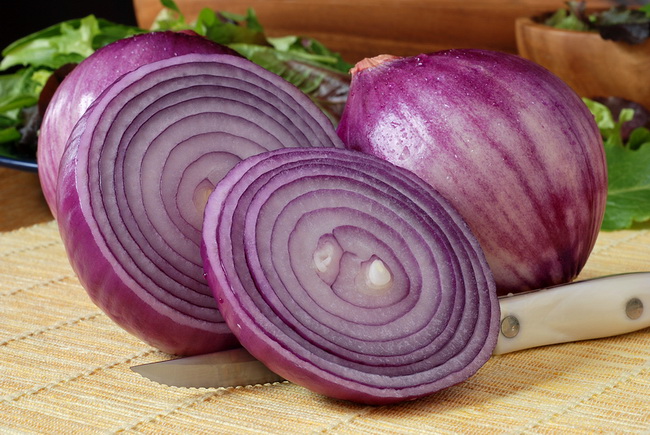- Make It Yourself Lavender Heart-Shaped Bath Bombs!
- 20 Things You Never Knew About “Down There”
- 12 Best Foods For Those Suffering From Arthritis Pain
- 12 Personal Hygiene Mistakes Almost Everyone Makes (Mom Never Told You About #4!)
- 15 Medicinal Plants And Herbs From The Cherokee People
- 12 Mind-Blowing Benefits Of Drinking Coconut Water During Pregnancy
- 12 Outstanding Winter Foods That Won’t Fatten You Up Like A Christmas Turkey
12 Herbs That will Really Get Your Blood Going

Photo credit: bigstock.com
Poor circulation doesn’t sound like much of a problem — until you consider what can happen to your body if your blood isn’t making the rounds like it should. If your fingers and toes always seem to be cold, or if your knees, knuckles, or ankles seem to be as well for no reason, you probably suffer from poor circulation.
However, those are the minor problems. Poor circulation can increase your risk for heart attack, stroke and even vein thrombosis. Getting the proper blood supply to the organs is vital for a healthy body.
Although poor circulation can sometimes occur due to health problems such as liver disease, diabetes, kidney problems and heart disease, many times it is caused by nothing more than a poor diet, a lack of certain nutrients or unhealthy habits such as smoking.
There are natural ways to improve your circulation with simple herbs and vitamins you are likely to have on your kitchen shelves, or that you can find in your garden or at your local health food store.
Keep reading! We made a list of 12 best ways to naturally improve circulation and get your blood pumping again!
1. Cayenne Pepper
You will find that many herbal practitioners suggest using cayenne pepper to encourage better blood circulation. Cayenne pepper is a natural blood cleanser; additionally, it supports the circulatory system. This is a great way to help those with rheumatoid arthritis or regular bouts of arthritis, as it warms the arms and legs. This herb stimulates the circulatory system by dilating the blood vessels, bringing warm and new blood throughout the body. You can add a bit of this peppery spice to your cooking or try supplements if you can’t stomach the thought of eating anything too spicy.
2. Co-Enzyme Q10
This antioxidant has certainly gotten a great deal of attention lately. Co-Q10 is found in lean meat, and it greatly diminishes the effects of stress and illness, filling people with more energy and making them feel younger. This antioxidant — which the body does not make so we must consume it — strengthens the heart muscle, which makes it easier for the heart to pump blood to the body’s extremities. If you decide to take a supplement, talk to your doctor about the right dose for your condition.
3. Ginger
Ginger is a nice alternative for those who find cayenne pepper too strong for their tastes. This is a much gentler warming agent that works by thinning the blood slightly, improving blood circulation. One Japanese study out found that the herbal medicine Dai-kenchu-to had a beneficial effect on the blood flow within the intestines. This was mostly due to the dried ginger found in this herbal treatment. Drink ginger tea several times each day to improve your blood circulation.
Continue to Page 2

Photo credit: bigstock.com
4. Folic Acid
This is one of the most important B vitamins because it is needed for cell growth and replication. As you can imagine, this vitamin is especially important when you are pregnant to protect your baby’s developing cells. When adults lack folic acid, it can cause anemia, which means that the red blood cell count is low. A lack of red blood cells means your body is not getting sufficient amounts of oxygen. Ask your doctor if you could be low on folic acid, or take a B vitamin complex supplement.
5. Prickly Ash
The bark of this tree is often used as a way to stop toothaches, but it is also a very effective remedy for improving blood circulation. It provides relief from toothache or other types of mouth pain (such as from a pulled or abscessed tooth) by improving blood circulation to the mouth, encouraging quicker healing. Prickly ash bark will also improve the poor circulation that results in cold feet or hands. This treatment will stimulate the central nervous system and improve blood flow to the entire body. Speak to your doctor for the proper dosage for your situation and condition.
6. Hawthorn
This herb has been used for years as a traditional remedy to protect the body from heart disease, mild congestive heart failure and irregular heartbeats. Hawthorn dilates blood vessels, protects the them from free radical damage and improves circulation through the entire body. This is not a commonly used herb, but don’t let that stop you. Bioflavonoids found in hawthorn like quercetin and rutin improve blood flow throughout the body.
Continue to Page 3

Photo credit: bigstock.com
7. Yarrow
This plant is well-known for its feathery leaves and wide white flowers, but few know about its amazing health benefits. Yarrow dilates the capillaries and tones the blood vessels. Mixed with lime blossom and hawthorn, yarrow is a very effective treatment for high blood pressure, as well as for preventing blood clots. This herb decongests the capillaries, allowing blood to flow properly and stimulating peripheral circulation.
8. Garlic
Garlic is perhaps the most versatile herb. Researchers have found that raw garlic, with its high amounts of alllicin, improves blood flow while acting as a diuretic to remove excess fluid. Many people with poor circulation have swollen joints, fingers or ankles. Garlic can remove the excess fluids that cause swelling. British scientists found that garlic tablets increase blood flow to the body and reduce the risk of heart disease.
9. Cinnamon
Cinnamon is valuable not only for its ability to improve blood sugar levels, but also for improving circulation. Cinnamon has been used in ancient Chinese medicine for centuries as a warming agent that improves both digestion and circulation. There have been several studies showing that it has positive cardiovascular effects. The active compound in cinnamon, coumarin, is famous for having compounds that help thin the blood. You shouldn’t consume cinnamon if you are already taking blood thinners. Ask your doctor or herbalist about how much cinnamon is right for you.
Continue to Page 4

Photo credit: bigstock.com
10. Onions
Have you heard that raw onions are super beneficial for the heart? One onion every day can regulate your circulation, reducing your risk of cardiovascular disease. People have used onions as food for thousands of years, but recently, onions’ medicinal purposes have come to light. A Texas A&M University study has shown that onions are loaded with antioxidants and other active compounds that are very beneficial to the health of the human body. They help stop blood clots, improve circulation and lower high blood pressure.
11. Gingko Biloba
Besides improving energy, gingko biloba has blood-thinning compounds that decrease the bonding of platelets, which improves circulation. There have been many, many studies done on gingko biloba, and they have found that that it dilates the blood vessels, improving blood circulation throughout the body.
SEE ALSO: Must Have Foods For Better Blood Infographic
12. Rosemary
This is one of the most amazing herbs around. Although most people think that it’s merely a spice for cooking or for aromatherapy, rosemary has long been shown to improve circulation for those with sciatica, muscle pain and neuralgia. It stimulates increased blood flow to the sore muscles to ease those muscles. Rosemary is also great for rejuvenating the skin. This is a terrific supplement for those with rheumatic problems or any other type of circulatory problem. Ask your physician or herbalist what dosage would be right for you.
References:
































